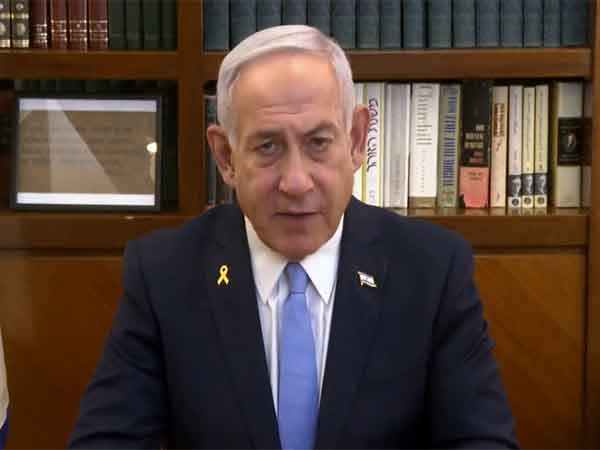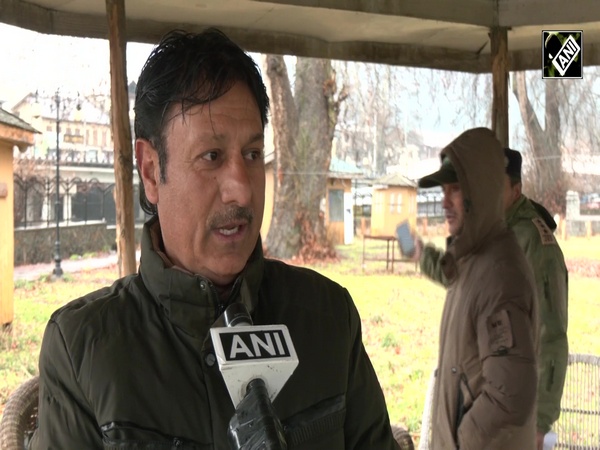Pakistan relations with traditional allies in Gulf are on downswing: Scholar
Jan 07, 2021

Hong Kong, January 07 : Pakistan's declining relations with its two biggest sources of foreign remittances and foreign exchange-- Saudi Arabia and the United Arab Emirates (UAE)-- is "bad news" for its already ailing economy of the country, said scholar Salman Rafi Sheikh.
In an opinion piece in Asia Times, Sheikh said Pakistan is tentatively reorienting its foreign policy away from Saudi Arabia and the UAE towards China's New Silk Roads.
Last August, Saudi Arabia asked Pakistan to repay early a USD 3 billion soft loan, Islamabad tried to defuse the tensions by quickly dispatching its current army chief General Qamar Javed Bajwa.
However, Saudi Arabia did not budge from its demand.
Sheikh said that the incident underscored "fast-shifting South Asia-Middle East relations, with several Gulf states that previously habitually sided with Muslim majority Pakistan now instead prioritizing growing their commercial and economic ties with India".
He added that the mounting dynamic is pushing Pakistan even closer to China, which provided funds to repay part of the Saudi loan.
On December 17, Pakistan repaid $1 billion as the second tranche of its accelerated repayment schedule.
Significantly, the scholar pointed out that the Saudi's demand comes at a time of extreme economic and financial stress in Pakistan.
The UAE, which is Pakistan's second-largest source of foreign remittances, has recently banned issuing work visas for Pakistani workers.
"While the ban was nominally imposed due to Covid-19, India, which has a much higher number of Covid cases, notably has not been banned," he wrote.
Pakistan Foreign Minister Shah Mahmood Qureshi's recent visit to the UAE failed to lift the ban, reportedly to Islamabad's severe disappointment.
"Pakistan's declining relations with its two biggest sources of foreign remittances and foreign exchange is bad news for its already ailing economy. While Pakistan dutifully repaid the Saudi loans, its rising reliance on China showed that it is not only an important but also Islamabad's only available option in a time of financial need," he said.
Sheikh pointed out that Kashmir is not the only reason "Pakistan's relations with its traditional allies in the Gulf are on a downswing".
Pakistan Prime Minister Imran Khan recently admitted that he was under pressure from "friendly countries" to establish diplomatic relations with Israel.
Islamabad's initial refusal to follow the UAE's lead in normalizing relations with Israel reportedly contributed to the UAE's imposition of a ban on Pakistani work visas.
"Pakistan's bubbling tensions with the Gulf states is also a reflection of its own changing foreign policy orientation, seen in slowly but surely growing ties with Gulf state rivals Turkey and Iran," he stated.
The Khan regime's lean towards Turkey is reflected in his recent foreign policy choices, including its stated willingness to revive the dormant transnational rail service linking Istanbul, Tehran and Islamabad in 2021.
The ITI transnational railroad is expected to enhance connectivity via China's Belt and Road Initiative (BRI) by providing a direct rail connection between China and Turkey via Iran. China's presence in the line's revival is of central importance.
"While Pakistan tentatively expands its ties with Iran and Turkey, Saudi Arabia and the UAE have applied clear pressure on Pakistan's two biggest sources of foreign remittances at a delicate economic juncture, undermining - at least for now - Islamabad's ability to chart a truly independent and perhaps more forward-looking foreign policy," the scholar noted.


















